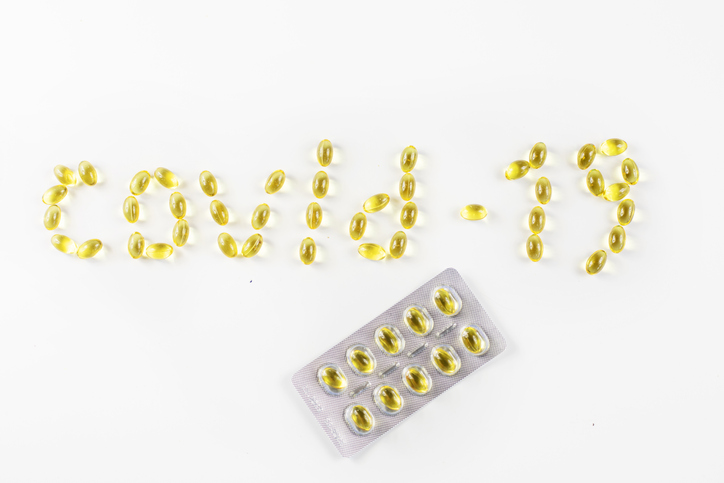What You Need to Know About Omega-3 Fatty Acids & COVID-19

By Joy Stephenson-Laws, JD, Founder
If you are a regular reader of pH Labs blogs, you know that I firmly believe that nutritional balance and getting an adequate intake of essential nutrients, such as vitamins and minerals, are absolutely key to our overall health and wellbeing. Nutrients are so vital that the difference between having enough of them or a lack of them can be a matter of life or death in some cases, and the COVID-19 pandemic appears to be exposing this truth.
For example, a recent study found evidence which suggests that COVID-19 patients with lower blood levels of omega-3 fatty acids have a risk of death that is four times higher compared to the patients with higher omega-3 fatty acids levels.

What are omega-3 fatty acids?
Both the essential fatty acids omega-3 and omega-6 are indeed essential to our health. Our bodies do not produce these fatty acids, so we have to get them from food and/or supplements. An ideal diet would have a healthy balance of omega-3 and omega-6, but the modern American diet tends to be richer in omega-6. A major source of omega-6 is found in vegetable oils (which are very popular in the American diet).
You may already know that fatty fish (such as salmon) are a great source of omega-3. Other sources include:
The benefits of omega-3 fatty acids include a reduced risk for heart attack and stroke, increased protection against Alzheimer’s disease, assisting in healthy neurological and eye development for fetuses and newborns, lower cholesterol and improvement in symptoms of rheumatoid arthritis. Research has shown that this fatty acid may even help with depression and other mood disorders.
And as I mentioned earlier, one study highlights how important omega-3s may be when it comes to fighting COVID-19. The study involved 100 patients who had been admitted to the hospital for COVID-19. At admission, blood samples were taken and the level of omega-3 fatty acids was noted. Of the 100 patients, 14 died. The results revealed that overall the people with the lower levels of omega-3 fatty acids were four times more likely to die. To put it another way, those with the highest levels were 75 percent less likely to die.
This all may have to do with the anti-inflammatory properties of omega-3 fatty acids.
"An excessive inflammatory response, referred to as a 'cytokine storm,' is a fundamental mediator of severe COVID-19 illness. Omega-3 fatty acids (DHA and EPA) have potent anti-inflammatory activities, and this pilot study provides suggestive evidence that these fatty acids may dampen COVID-19's cytokine storm," said an omega-3 fatty acids expert, referenced in this Medical Xpress report that discusses the study.
In my opinion, regular nutrient testing is invaluable. So many of us suffer from nutritional deficiencies and imbalances and don’t even know. We may not necessarily physically feel the effects of them. This is why, oftentimes, these deficiencies and imbalances are not exposed until we face a serious health issue. This is why I highly recommend that heart surgery patients get a pre-op nutrition test.
How can I get omega-3s if I am vegan or prefer to not eat fish?
There are plant-based sources of omega-3 fatty acids (some of these are listed above). Nori is a type of algae that is a great, delicious plant-based source.
Whatever your dietary preferences or restrictions may be, it is imperative to get a nutrient test to see where you stand and speak with a competent healthcare professional about whether dietary changes and/or supplementation is necessary for you. You may also want to consider krill oil.
For recommended intakes of omega-3 fatty acids, visit the National Institute of Health’s Office of Dietary Supplements. But keep in mind that it is still advised to discuss how much you personally need with a competent healthcare professional.
Continue to be proactive about COVID-19.
I know we are all getting COVID fatigue, but we still need to practice the proper precautions (wearing masks, washing our hands and social distancing). And don’t forget that one of your greatest personal weapons is your immune system.
Check out the pH Labs blogs on what you can do to be proactive in regards to making sure that your immune system is in top shape.
Enjoy your healthy life!
Disclaimer: This article is not intended to provide medical advice. Please consult with your doctor or another competent healthcare practitioner to get specific medical advice for your situation.
The pH professional health care team includes recognized experts from a variety of health care and related disciplines, including physicians, attorneys, nutritionists, nurses and certified fitness instructors. This team also includes the members of the pH Medical Advisory Board, which constantly monitors all pH programs, products and services. To learn more about the pH Medical Advisory Board, click here.







